Border Enforcement Regime for Intellectual Property
Introduction
The Combating Counterfeit Products Act, S.C. 2014, c. 32, which amended sections of the Copyright Act, R.S.C. 1985, c. C-42, and the Trade-marks Act, R.S.C. 1985, c. T-13, came into force on January 1, 2015. It also created an IP border enforcement regime empowering the Canada Border Services Agency ("CBSA") to detain counterfeit goods at the border. The United States-Mexico-Canada Agreement ("USMCA"), which was agreed upon in or around October 2018, and came into force on July 1, 2020, has also contributed to Canada's anticounterfeiting border enforcement.
The IP border enforcement regime creates an import/export prohibition expressly for counterfeit goods/pirated works as follows:
- Rights holders can "seek assistance" from the CBSA by filing a form called a Request for Assistance (RFA).
- CBSA can detain suspected counterfeit and pirated goods.
- CBSA can share certain information with the rights holders.
- Rights holders can assess if the detained goods are counterfeit.
- If goods are counterfeit, rights holder's can seek detention, destruction and other remedies by commencing an action. Subject to judicial determination, the CBSA can destroy counterfeit goods.
It is notable that the USMCA extended the ability of the CBSA to detain suspected counterfeit and pirated goods to include goods in-transit to a destination outside of Canada and goods admitted into or exiting from a free trade zone or bonded warehouse. These goods are now statutorily considered to have been imported for the purpose of the prohibition against the import and export of counterfeit goods and pirated works.
Request for Assistance (RFA)
To participate in the IP border enforcement regime, the rights holders must file, with the CBSA, their registered Canadian trademark rights and copyrights using a form called a Request for Assistance (RFA), available on the CBSA website. As a result of amendments to the Trademarks Act in June 2019, it is now possible to request a geographical indication trademark be placed on Canada's list of protected GIs in respect of wine, spirits, agricultural products or food. In the event a geographical indication is protected, it would be considered a violation of Canadian trademark rights for a product to inaccurately bear such an indication.
The RFA must include:
- legal name of the rights holder;
- the rights holder's mailing address;
- the rights holder representative for service in Canada and their contact information, which must include a Canadian address (if applicable);
- indication if the RFA pertains to a trademark or copyright;
- trademark and/or copyright registration number (not mandatory for copyright); and,
- the rights holder signature and date.
The RFA can also include additional information that will assist the CBSA in distinguishing authentic goods from counterfeit versions of those goods. Rights holders are obliged to keep the CBSA informed of changes material to their RFA including changes to ownership and subsistence of the intellectual property rights being relied upon.
There is no cost to file an RFA. It is valid for 2 years and can be renewed for additional 2-year periods by resubmitting an application before (or even after) an accepted RFA expires. The CBSA is entitled to ask for security prior to accepting an RFA for filing, but to date has not implemented that protocol. Delivery of an RFA is a condition precedent to participation in the new IP Border Enforcement Regime.
Once completed it can be delivered by email to:[email protected];
or by mail to:
Canada Border Services Agency
Commercial Registration (HQ)
191 Laurier Avenue West, 12th Floor
Ottawa, ON K1A 0L8
Once an RFA is filed, the CBSA can share information with RFA participants in respect of suspect shipments including, providing the rights holder with samples of the suspect goods, and information about the suspect goods that could assist the rights holder in pursuing a remedy under the Copyright Act or the Trademarks Act.
3 Day - 10 Day
Strict time limits apply to proceedings under the new IP border enforcement regime.
If the rights holder is notified by the CBSA of a suspect shipment, the rights holder has 3 business days to advise the CBSA, if it wishes to pursue a remedy.
If the rights holder does not notify the CBSA within 3 business days of its intention to proceed with litigation, provided the suspected counterfeit goods and/or pirated works meet all other import requirements, the CBSA will release the goods.
If the rights holder does notify the CBSA that it will be pursuing a legal remedy under the Copyright Act or the Trade-marks Act, three things follow:
- A "Rights Holders Notice of Detention for Goods Suspected of Contravening IPR" will be delivered to the rights holder, via email.
- The suspected counterfeit and/or pirated goods will continue be detained to enable the rights holder time to commence proceedings.
- The importer will be advised that the CBSA has detained their goods.
Detention is only permitted for a short period of time (5 days if perishable goods, 10 days if not perishable goods) for commercial shipments that contain suspected counterfeit goods and/or pirated works, as per s. 101 of the Customs Act, R.S.C. 1985, c. 1 (2nd Supp.). Detention longer than 5 or 10 days, as applicable (and subject to one discretionary extension by the CBSA), can arise only if the RFA participant notifies the CBSA that it/he/she has commenced a lawsuit.
It should be noted that the CBSA does not notify rights holders who have not filed an RFA of IP related issues.
Costs of storage, handling and possibly destruction of any detained goods will be charged to the rights holder (but are typically recovered from the importer by way of resolution or in the action).
The CBSA has published a detailed guidance document on the IPR border enforcement regime: See: Memorandum D19-4-3 issued on November 2, 2015, which can be found here.
Materials reproduced with the permission of LexisNexis Canada. http://www.lexisnexis.ca/en-ca/products/practice-advisor.page
